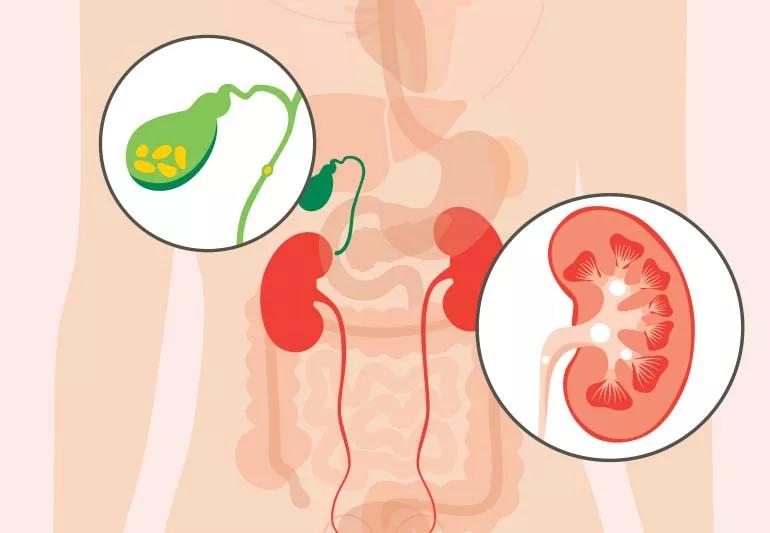Comparing Kidney Stones vs UTI: What You Need to Learn About Their Effect On Health and wellness
Comparing Kidney Stones vs UTI: What You Need to Learn About Their Effect On Health and wellness
Blog Article
Exploring the Symptoms and Causes of Kidney Stones in Contrast to Urinary System Infections: A Detailed Overview
The expedition of kidney stones and urinary system system infections (UTIs) reveals a complicated interplay of signs and underlying reasons that necessitate mindful evaluation. While both conditions can cause hematuria, they offer distinctive clinical features and emerge from different etiological elements. Comprehending the subtleties of each problem is vital for effective diagnosis and administration. What are the vital distinctions in their signs, and just how might these inform treatment techniques? The solution to these inquiries may provide important insights into the avoidance and care of these usual urological issues.
Introduction of Kidney Stones
Kidney stones, additionally referred to as renal calculi, form when particular materials in the urine crystallize and aggregate, resulting in the development of hard down payments within the kidneys. These rocks can differ in dimension, ranging from a grain of sand to a golf ball, and can be composed of numerous products, one of the most typical being calcium oxalate, uric acid, struvite, and cystine. The development of kidney rocks is influenced by several elements, including nutritional behaviors, liquid consumption, and genetic predisposition.
Symptoms of kidney stones may consist of extreme discomfort in the back or side, blood in the urine, nausea, and constant peeing, especially as the stone relocates via the urinary system system. Diagnosis normally includes imaging studies such as ultrasound or CT scans, along with urinalysis to determine the stone's make-up.
Therapy options differ based on the size and kind of stone, as well as the extent of signs (Kidney Stones vs UTI). Small rocks may pass normally with enhanced liquid consumption, while larger rocks might need clinical treatments such as lithotripsy or surgical elimination. Understanding the pathophysiology and threat elements connected with kidney stones is vital for effective avoidance and management
Review of Urinary System Infections
Urinary system infections (UTIs) are usual microbial infections that affect any kind of part of the urinary system, including the kidneys, ureters, bladder, and urethra. They primarily take place when bacteria, typically from the stomach system, enter the urinary system, leading to inflammation and infection.
The occurrence of UTIs is especially higher in females than men, primarily because of physiological distinctions, such as a much shorter urethra. Risk elements include sex-related activity, specific contraceptive methods, urinary system retention, and dehydration. The diagnosis of UTIs is typically verified with urine examinations, which might disclose the presence of microorganisms, leukocyte, or red cell.

Signs And Symptoms of Kidney Stones
The pain related to kidney rocks can manifest in numerous ways, often leading people to seek clinical attention. Among the most typical signs and symptoms is severe pain, generally local in the lower back or side, which may emit to the abdomen or groin. This discomfort, frequently referred to as sharp or cramping, can happen suddenly and may weblink vary in intensity.
Additionally, individuals might experience hematuria, or blood in the urine, which can range from tiny amounts to noticeable staining. This sign may be come with by modifications in urinary behaviors, such as enhanced regularity or seriousness, as well as pain during urination. Nausea and throwing up are also common, typically resulting from the body's reaction to extreme pain.
In some situations, people may experience high temperature and chills, specifically if a secondary infection establishes as a result of the blockage brought on by the rocks. On the whole, the combination of serious discomfort, hematuria, transformed urinary patterns, and intestinal signs and symptoms can offer considerable understanding right into the presence of kidney stones, calling for punctual clinical evaluation and intervention. Comprehending these signs is critical for timely diagnosis and efficient monitoring of the problem.
Signs And Symptoms of Urinary Tract Infections
Infections within the urinary tract typically provide a series of distinct symptoms that can significantly impact life. One of the most common symptoms consist of a next page persistent urge to pee, often accompanied by a burning sensation during peeing, recognized as dysuria. People might additionally experience increased frequency of peeing, generating percentages of pee each time.
Other noteworthy signs include cloudy or foul-smelling pee, which might show the visibility of germs or pus. In many cases, urine may show up pink or red because of the existence of blood, a condition referred to as hematuria. In addition, individuals may experience pelvic pain or pressure, which can even more exacerbate the sensation of seriousness.
Systemic symptoms may additionally materialize, such as fever, cools, and tiredness, particularly if the infection has actually risen to the kidneys. It is vital to acknowledge these signs and symptoms early, as unattended urinary system tract infections can lead to extra serious problems. Kidney Stones vs UTI. Motivate clinical attention is suggested when these signs are observed, enabling proper analysis evaluation and therapy navigate to these guys to reduce pain and avoid more health and wellness concerns
Causes of Each Problem
Frequently, kidney rocks and urinary system tract infections occur from distinctive yet occasionally overlapping causes that can impact individuals in a different way. Dehydration, insufficient liquid intake, and high-sodium diet plans can worsen these problems, advertising crystallization within the urinary tract.

Comprehending these unique causes is essential for prevention and therapy. Kidney Stones vs UTI. While way of living adjustments may mitigate the threat of kidney rocks, suitable hygiene and prompt therapy of urinary system tract infections are important for reducing their recurrence and linked issues
Conclusion
In recap, kidney stones and urinary system tract infections existing distinctive signs and underlying reasons. Kidney stones are defined by extreme pain and metabolic variables, while urinary tract infections largely include bacterial infections leading to urinary seriousness and discomfort.
The exploration of kidney rocks and urinary system tract infections (UTIs) exposes an intricate interplay of signs and underlying reasons that require cautious exam.Urinary system infections (UTIs) are common bacterial infections that impact any kind of part of the urinary system, consisting of the kidneys, ureters, bladder, and urethra.Frequently, kidney rocks and urinary system infections occur from distinct yet occasionally overlapping causes that can affect people differently.In summary, kidney stones and urinary system system infections present distinctive signs and symptoms and underlying reasons. Kidney stones are defined by serious discomfort and metabolic variables, while urinary system system infections primarily involve bacterial infections leading to urinary seriousness and pain.
Report this page